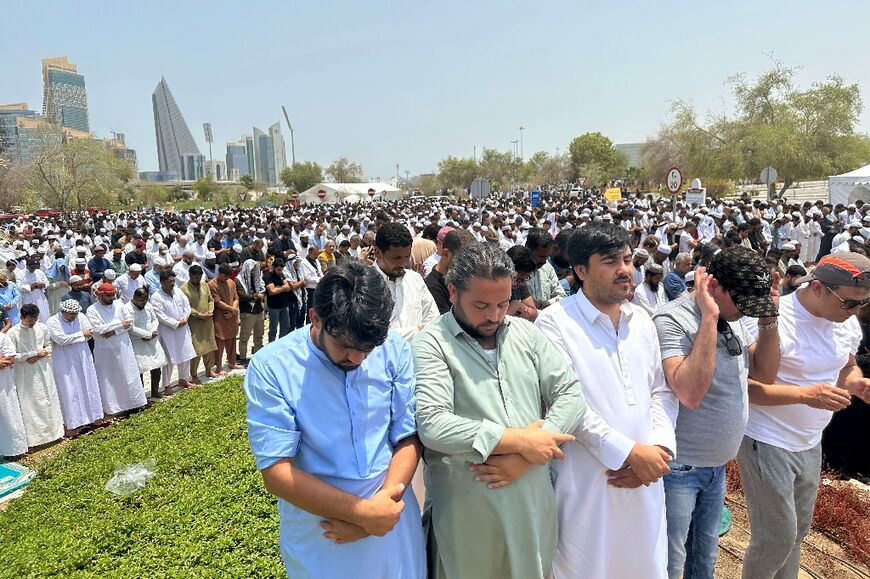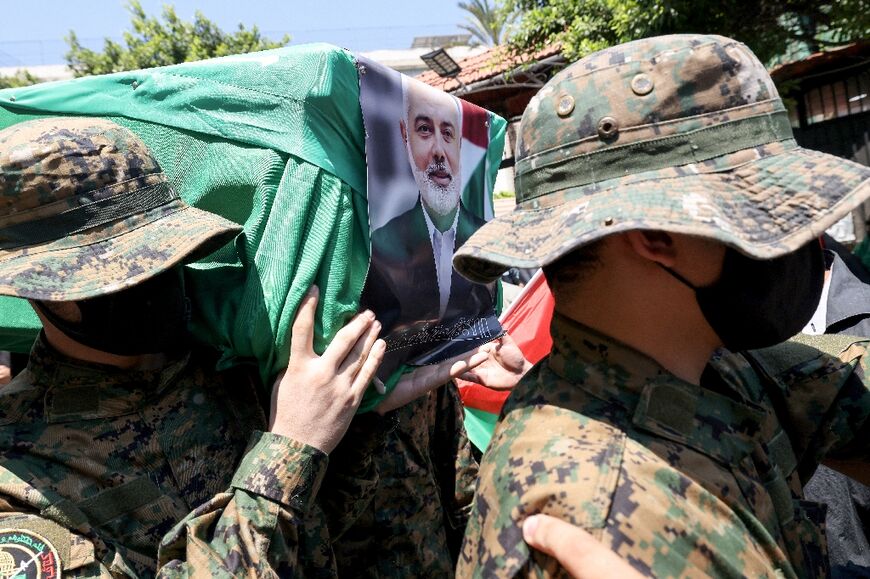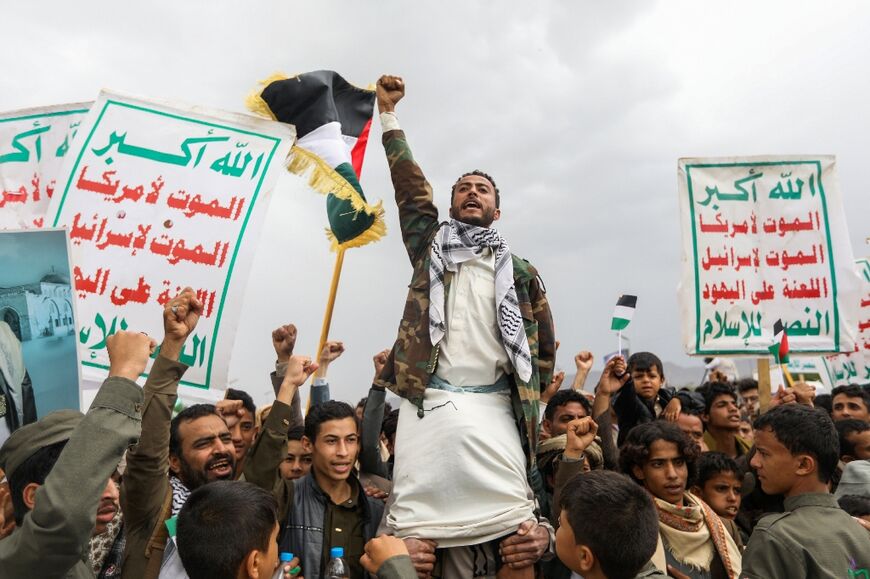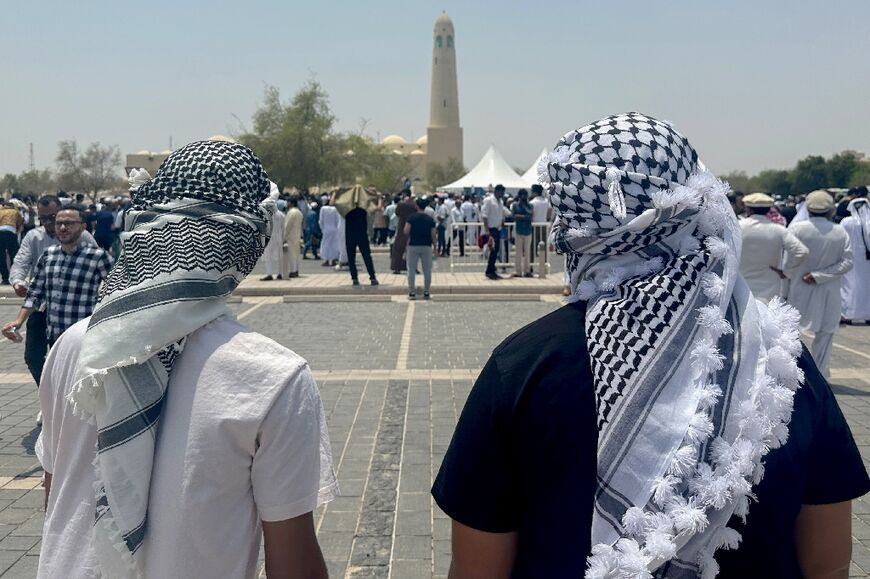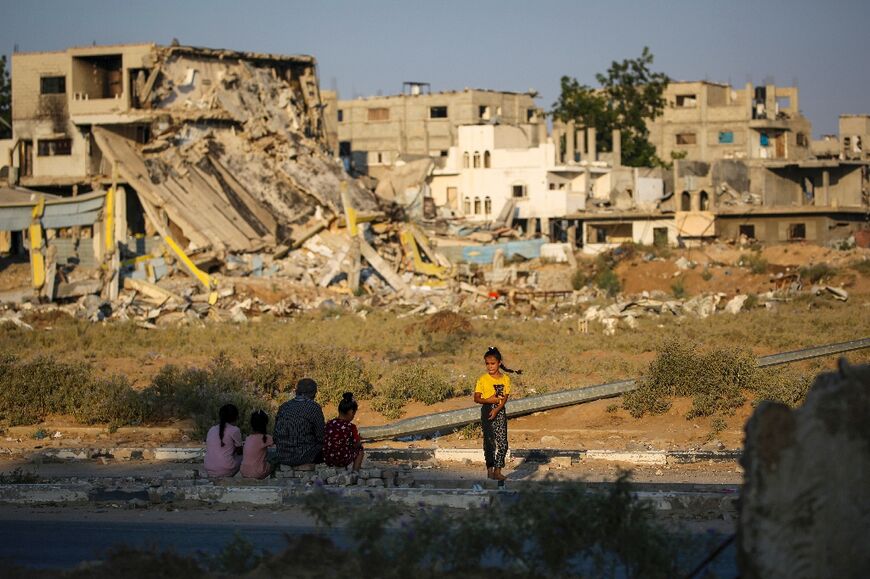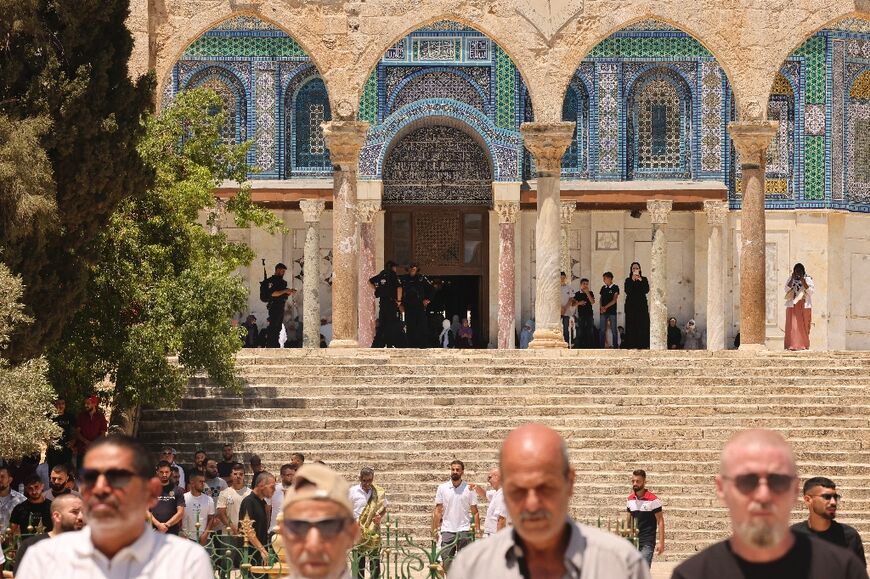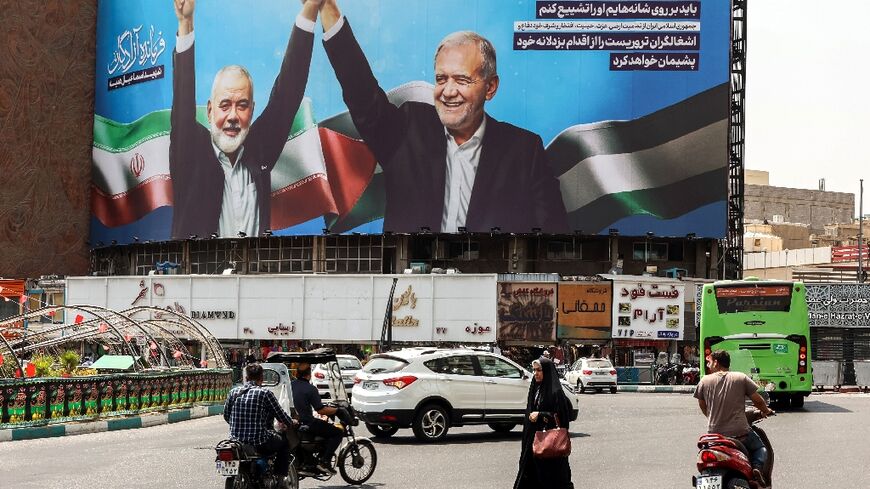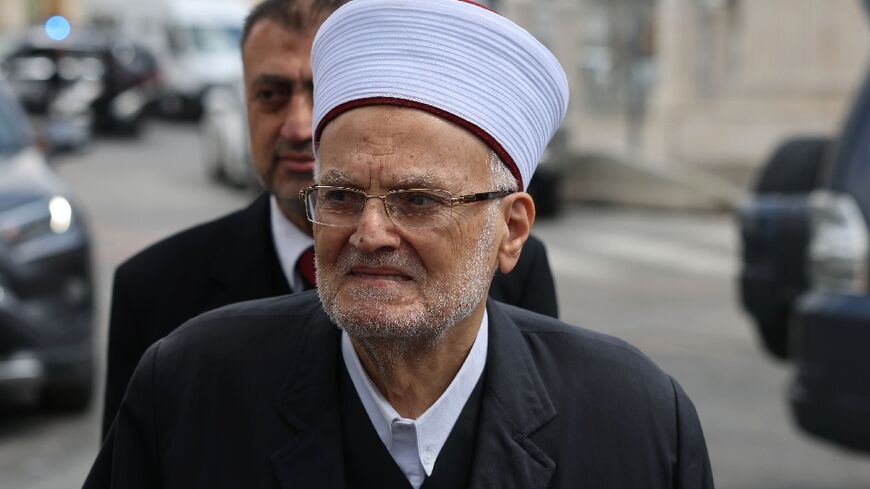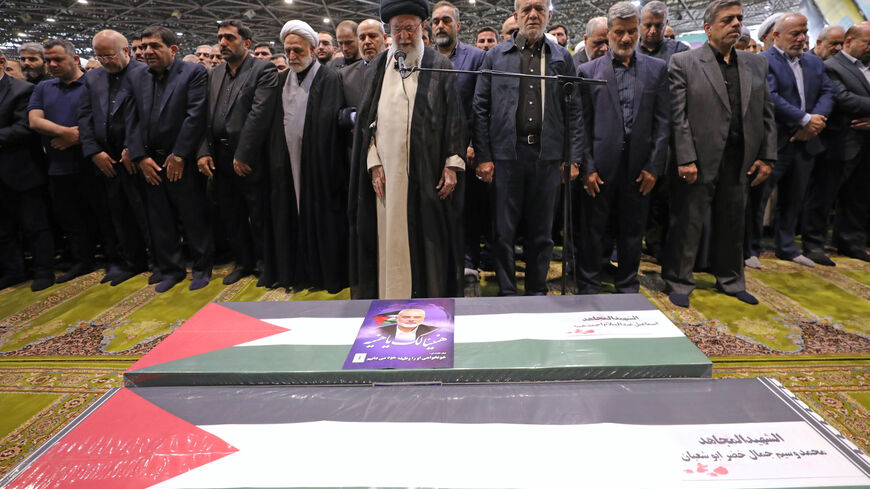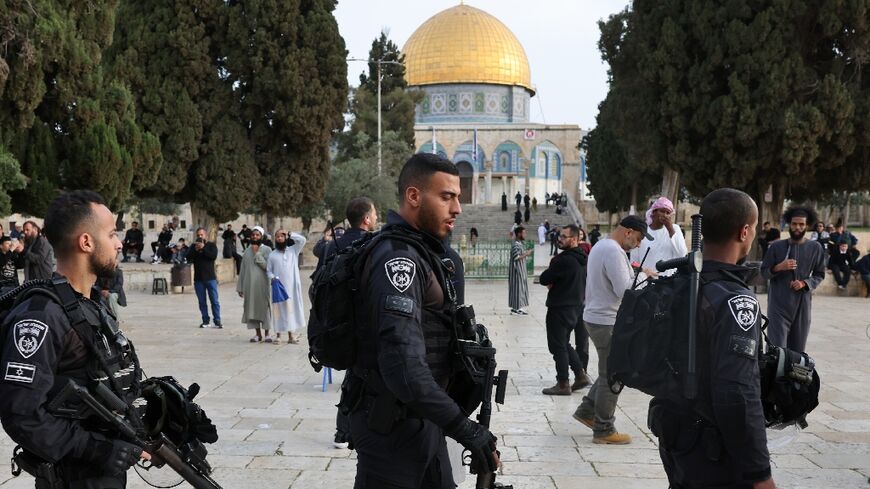Slain Hamas chief laid to rest in Qatar as escalation fears grow

Hamas leader Ismail Haniyeh was buried in Qatar on Friday after his killing in Tehran, an attack blamed on Israel that has heightened regional tensions as the Gaza war drags on.
Haniyeh was laid to rest in Lusail, north of the capital Doha, following funeral prayers at the Gulf emirate's largest mosque attended by thousands of people.
Haniyeh, the Palestinian militant group's political chief, played a key role in negotiations for an end to nearly 10 months of war between Hamas and Israel in the Gaza Strip.
Mourners lined up inside Imam Muhammad bin Abdul Wahhab Mosque, where Haniyeh's casket, draped in a Palestinian flag, was briefly carried in to the shouts of angry mourners.
Others prayed on mats outside in temperatures that reached 44 degrees Celsius (111 degrees Fahrenheit).
"He was a symbol, a resistance leader... people are angry," said Taher Adel, 25, a Jordanian student residing in the Qatari capital.
The burial was restricted to a small number of people including one of Haniyeh's daughters, Sara, who shared a video on social media showing her pouring holy water over a pebble-topped grave before lowering her head to kiss it.
Many mourners in Doha wore scarves that combined the Palestinian flag with a checkered keffiyeh pattern and the message in English: "Free Palestine".
In Israeli-annexed east Jerusalem, a senior Palestinian Muslim cleric, 85-year-old Sheikh Ekrima Sabri, was detained on suspicion of inciting "terrorism" after calling Haniyeh a "martyr" in his sermon at the revered Al-Aqsa Mosque, his lawyer told AFP.
Fighting meanwhile continued in Hamas-ruled Gaza, where the civil defence agency reported several people killed in the territory's north, and the Israeli military said rockets were fired at Israel, causing no casualties.
- 'Critical moment' -
Haniyeh and a bodyguard were killed in a pre-dawn "hit" on their accommodation in Tehran Wednesday, Iran's Revolutionary Guards said. Haniyeh was in Iran to attend the swearing-in of President Masoud Pezeshkian on Tuesday.
Israel, accused by Hamas, Iran and others of the attack, has not directly commented on it.
The killing of Qatar-based Haniyeh is among a series of tit-for-tat attacks since April that have sent regional tensions soaring.
Iranian officials met with represenatives of allied armed groups in Syria, Lebanon, Iraq and Yemen on Wednesday to discuss the next steps, either "a simultaneous response from Iran and its allies or a staggered response from each party", a source close to Lebanon's Hezbollah movement told AFP.
Military chief Herzi Halevi told troops Israel would respond "very strongly" to any attack, an army statement said.
Israel ally the United States plans to bolster defences in the region and "provide elevated support to the defence of Israel", Deputy Pentagon Press Secretary Sabrina Singh said without specifying.
Israeli Defence Minister Yoav Gallant met with his visiting British counterpart John Healey on Friday and called for an international coalition to support "Israel's defence against Iran and its proxies", Gallant's office said.
Healey said "we urged all sides to show restraint and dial down the tension at this critical moment".
British Foreign Secretary David Lammy, who visited the region this week, said there was an "urgent need for de-escalation".
"The risk that the situation on the ground could deteriorate rapidly is rising," Lammy said in a statement, calling for "an immediate ceasefire" in Gaza with hostages released and aid "getting in in sufficient quantity".
US President Joe Biden, after a Thursday telephone call with Israeli Prime Minister Benjamin Netanyahu, told reporters: "We have the basis for a ceasefire... They should move on it now."
- Gaza in ruins -
Haniyeh's assassination came hours after Israel struck a southern suburb of Beirut, killing Fuad Shukr, the military commander of Lebanese Hamas ally Hezbollah.
During the Gaza war, triggered by Hamas's October 7 attack on southern Israel, Hezbollah and Israeli forces have engaged in near-daily exchanges of fire, and did so again on Friday.
Israel has vowed to destroy Hamas in retaliation for the October 7 attack which resulted in the deaths of 1,197 people, mostly civilians, according to an AFP tally based on official Israeli figures.
Militants also seized 251 hostages, 111 of whom are still held captive in Gaza, including 39 the military says are dead.
Israel's retaliatory campaign against Hamas has killed at least 39,480 people in Gaza, according to the territory's health ministry, which does not give details of civilian and militant deaths.
The fighting has sparked a dire humanitarian crisis in the besieged territory. On Friday, the UN Satellite Centre said nearly two-thirds of the buildings in Gaza, or 151,265 structures, have been damaged or destroyed during the war.
On Thursday, Iran's supreme leader Ayatollah Ali Khamenei led prayers for Haniyeh in Tehran, having earlier threatened "harsh punishment" for his killing.
The New York Times, citing Middle Eastern officials, has reported that Haniyeh was killed by an explosive device planted weeks ago at a Tehran guesthouse.
Asked about the report, Israeli military spokesman Daniel Hagari told journalists "there was no other Israeli aerial attack... in all the Middle East" on the night of Shukr's killing in Lebanon.
Israel said Shukr's assassination -- for which Hezbollah said retaliation was "inevitable" -- was a response to rocket fire which killed 12 children last week in the annexed Golan Heights.
Iranian news agency Fars said the US report of a pre-planted bomb was a "lie", insisting that the Hamas leader was killed by a "projectile".


